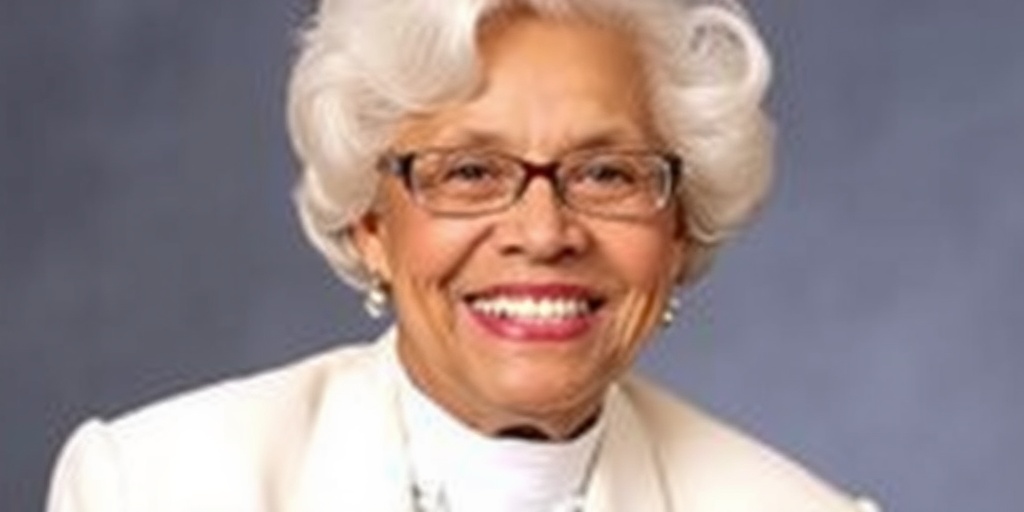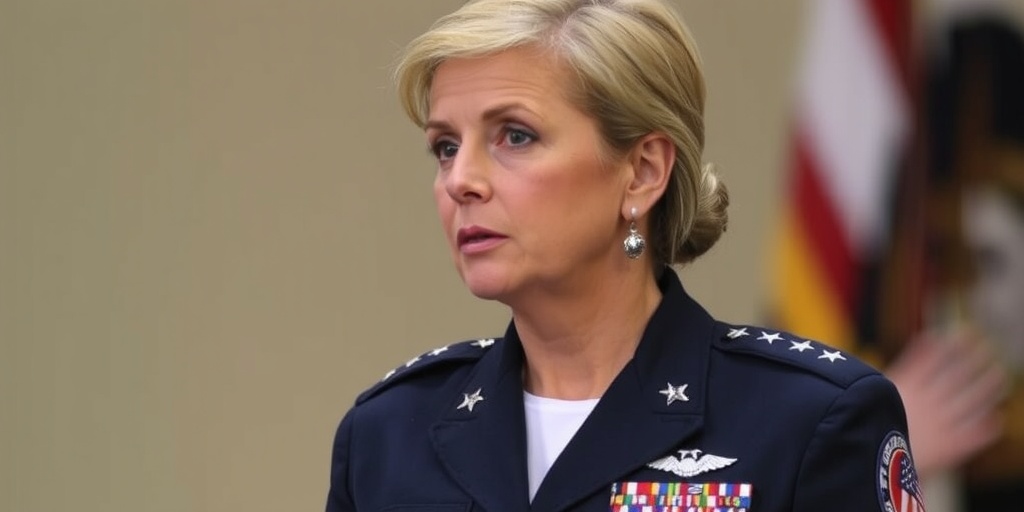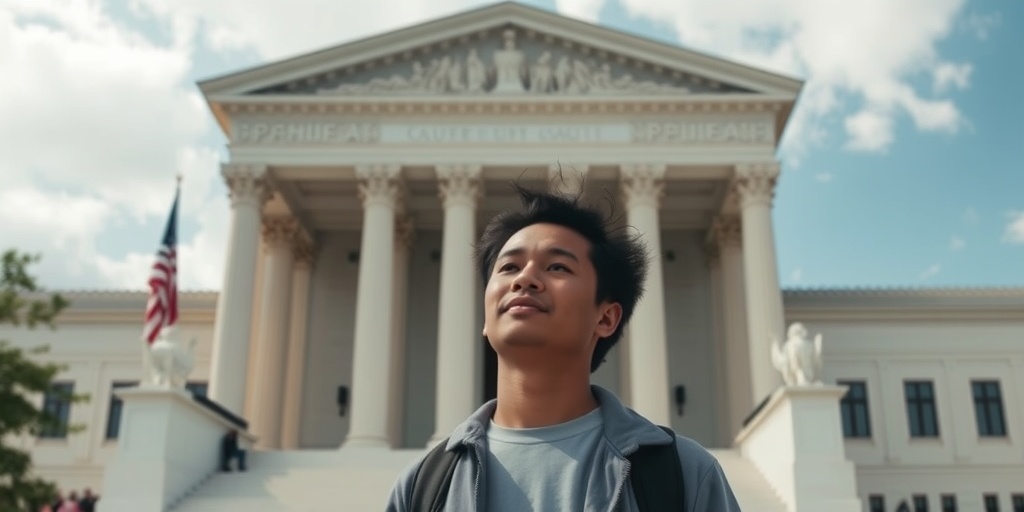Now Reading: Rev. Joan Brown Campbell, Former National Council of Churches Leader, Dies at 93
-
01
Rev. Joan Brown Campbell, Former National Council of Churches Leader, Dies at 93
Rev. Joan Brown Campbell, Former National Council of Churches Leader, Dies at 93

Rev. Joan Brown Campbell, Pioneering Ecumenical Leader, Passes Away at 93
Rev. Joan Brown Campbell, a trailblazing figure in the ecumenical movement and a prominent leader in American religious communities, died on March 29 in Chagrin Falls, Ohio, at the age of 93. Her daughter, Jane Campbell, a former mayor of Cleveland, reported that the cause of death was complications related to dementia.
Born on November 13, 1931, in Youngstown, Ohio, Campbell grew up in a family that valued education and service. She earned her bachelor’s degree in English and speech from the University of Michigan in 1953, marrying law student Paul B. Campbell the same year. Together, they raised three children in a home that became a hub for liberal activism and discussions on civil rights and the Vietnam War.
One of the defining moments of Campbell’s life occurred in 1965, when she invited Rev. Dr. Martin Luther King Jr. to speak at her all-white church in the suburbs of Cleveland. The invitation triggered a wave of controversy, with bomb threats directed at her family and opposition from some members of her church. Despite the challenges, Dr. King spoke outside the church to a crowd of 3,000 people—a testament to Campbell’s commitment to racial equality and justice. In retrospect, she noted how this pivotal moment marked the beginning of her journey toward becoming a dedicated minister and advocate for social justice.
Though she did not become an ordained minister until she was 49, her prior experiences in activism and community organizing laid the groundwork for her future leadership roles. Campbell became an ordained minister within the Progressive National Baptist Convention, the same denomination as Dr. King, and eventually led the National Council of Churches (NCC), representing 42 million Christians across the United States.
Her tenure at the NCC began in 1990 when she became the first ordained woman to serve as general secretary. During her decade-long leadership, she worked tirelessly to foster unity among diverse Christian denominations, including mainline Protestant churches, traditionally Black congregations, and Orthodox faiths. Campbell’s leadership coincided with a period of rising religious conservatism and political engagement among conservative Christians, prompting her to mobilize an interfaith coalition. In 1994, she articulated the concerns of mainstream religious leaders in a New York Times interview, emphasizing the importance of representing an alternative religious voice to counter the influence of the radical right.
Throughout her career, Campbell’s commitment to social justice extended beyond the church walls. She was instrumental in high-profile political efforts, including advocating for climate change action through the Kyoto Protocol and working alongside the Rev. Jesse L. Jackson during a mission to secure the release of American soldiers in Serbia in 1999. Perhaps most notably, she played a significant role in the contentious custody battle over Elian Gonzalez, a Cuban boy whose fate became a national dispute. Campbell was enlisted by the Cuban Council of Churches in an effort to reunite Elian with his father, traveling to Cuba and providing support to the family during a tumultuous time.
Despite the challenges she faced, Campbell believed in the importance of family unity. She famously stated, “It’s deep in the American court system that children belong with their families unless their families are abusive,” advocating for Elian’s return to his father in Cuba.
Campbell’s remarkable journey as a leader in the ecumenical movement didn’t come without personal challenges. Her dedication to activism strained her marriage, and she and her husband divorced in 1974. Nevertheless, she threw herself into her work, eventually achieving recognition as a powerful advocate for social and environmental justice.
In 2017, at the age of 86, Campbell married Rev. Albert Mitchell Pennybacker Jr., who had been a significant influence in her life and ministry. The couple shared a commitment to civil rights activism until Pennybacker’s death in 2022.
Joan Brown Campbell leaves behind a rich legacy, and she is survived by her three children—Paul B. Campbell Jr., a former head of the International Baccalaureate Organization; Dr. James W. Campbell, a retired family physician; and Jane Campbell. She also leaves behind eight grandchildren, four great-grandchildren, and her sister, Betty Stralnic.
As a reflection of her life’s work, Campbell famously remembered an exchange with astronomer Carl Sagan, who questioned her faith in God. “You are so smart, why do you believe in God?” he asked, to which she replied, “You are so smart, why don’t you believe in God?” It’s this spirit of inquiry and conviction that defined her life, making her a significant figure in American religious and civic life whose influence will resonate for generations to come.
Stay Informed With the Latest & Most Important News
Previous Post
Next Post
-
 01New technology breakthrough has everyone talking right now
01New technology breakthrough has everyone talking right now -
 02Unbelievable life hack everyone needs to try today
02Unbelievable life hack everyone needs to try today -
 03Fascinating discovery found buried deep beneath the ocean
03Fascinating discovery found buried deep beneath the ocean -
 04Man invents genius device that solves everyday problems
04Man invents genius device that solves everyday problems -
 05Shocking discovery that changes what we know forever
05Shocking discovery that changes what we know forever -
 06Internet goes wild over celebrity’s unexpected fashion choice
06Internet goes wild over celebrity’s unexpected fashion choice -
 07Rare animal sighting stuns scientists and wildlife lovers
07Rare animal sighting stuns scientists and wildlife lovers





















